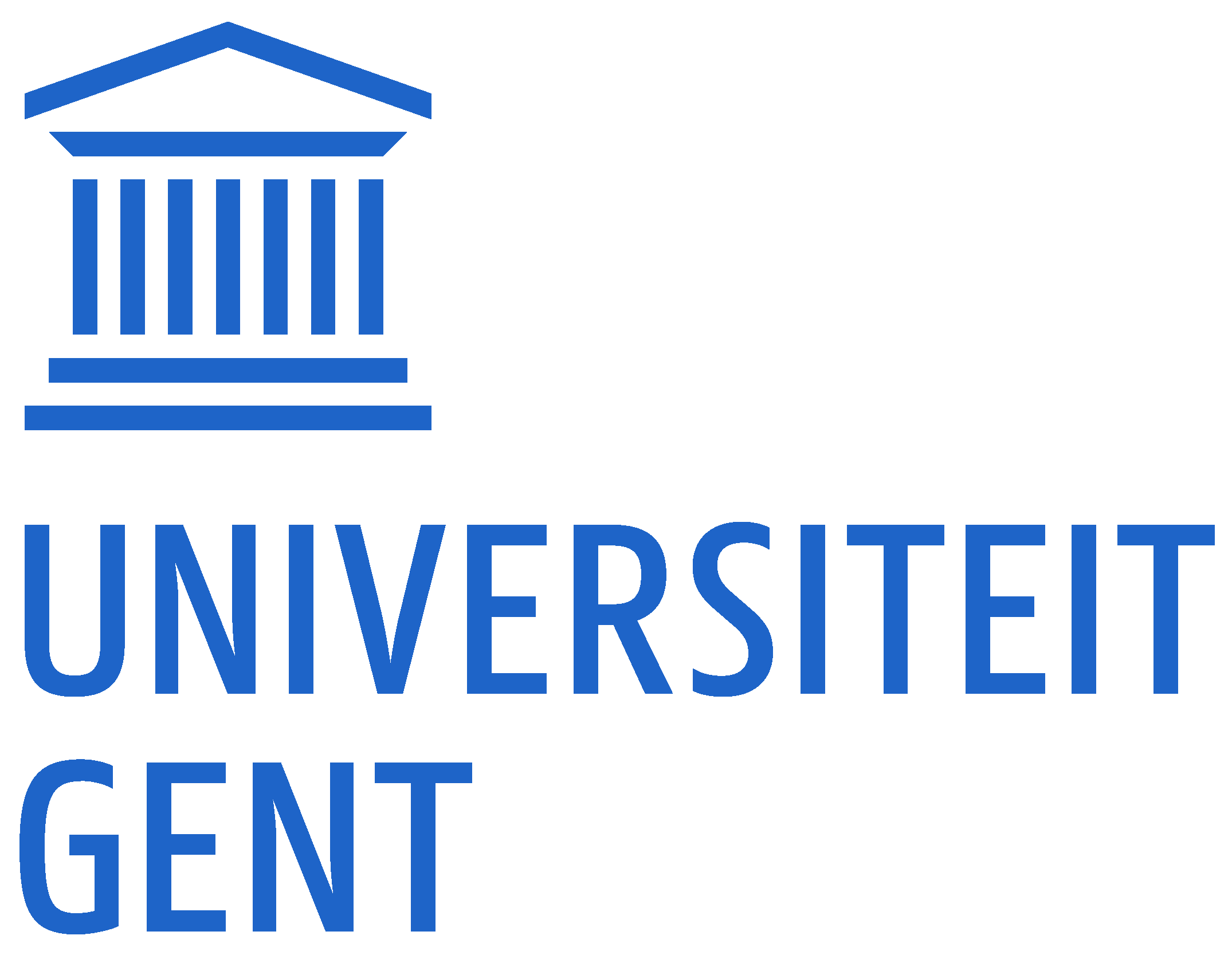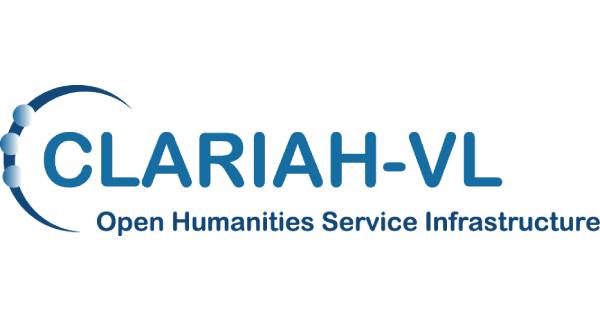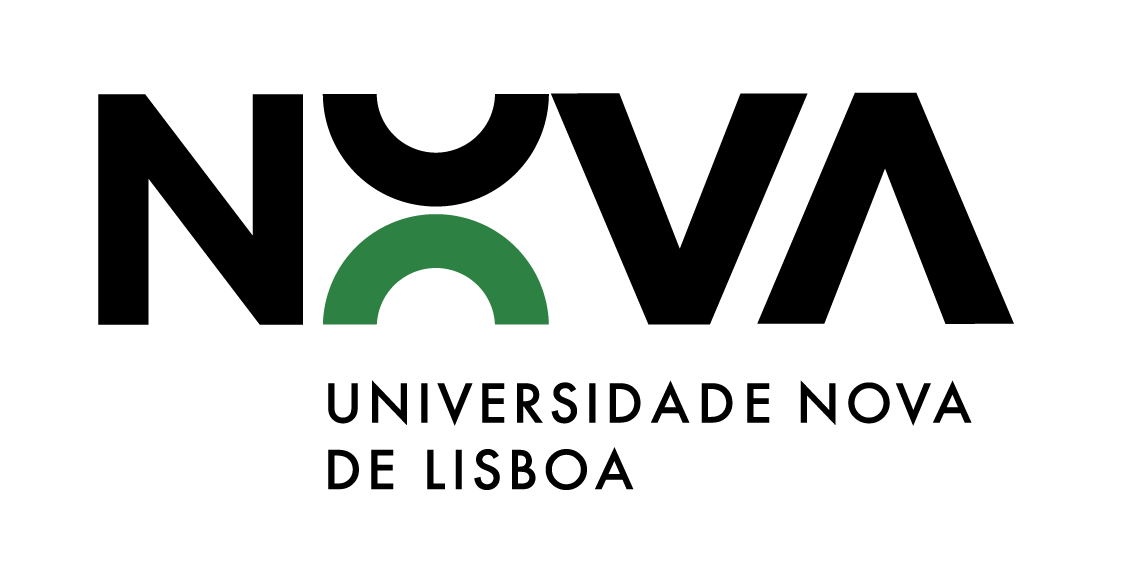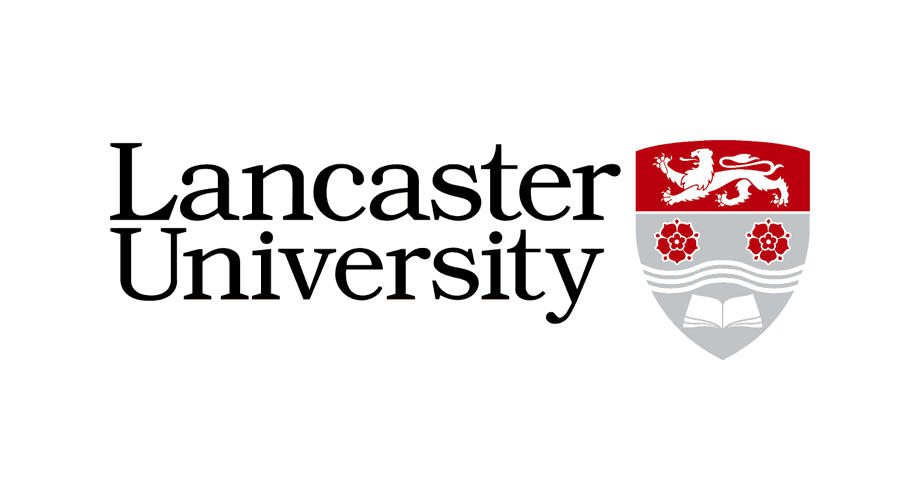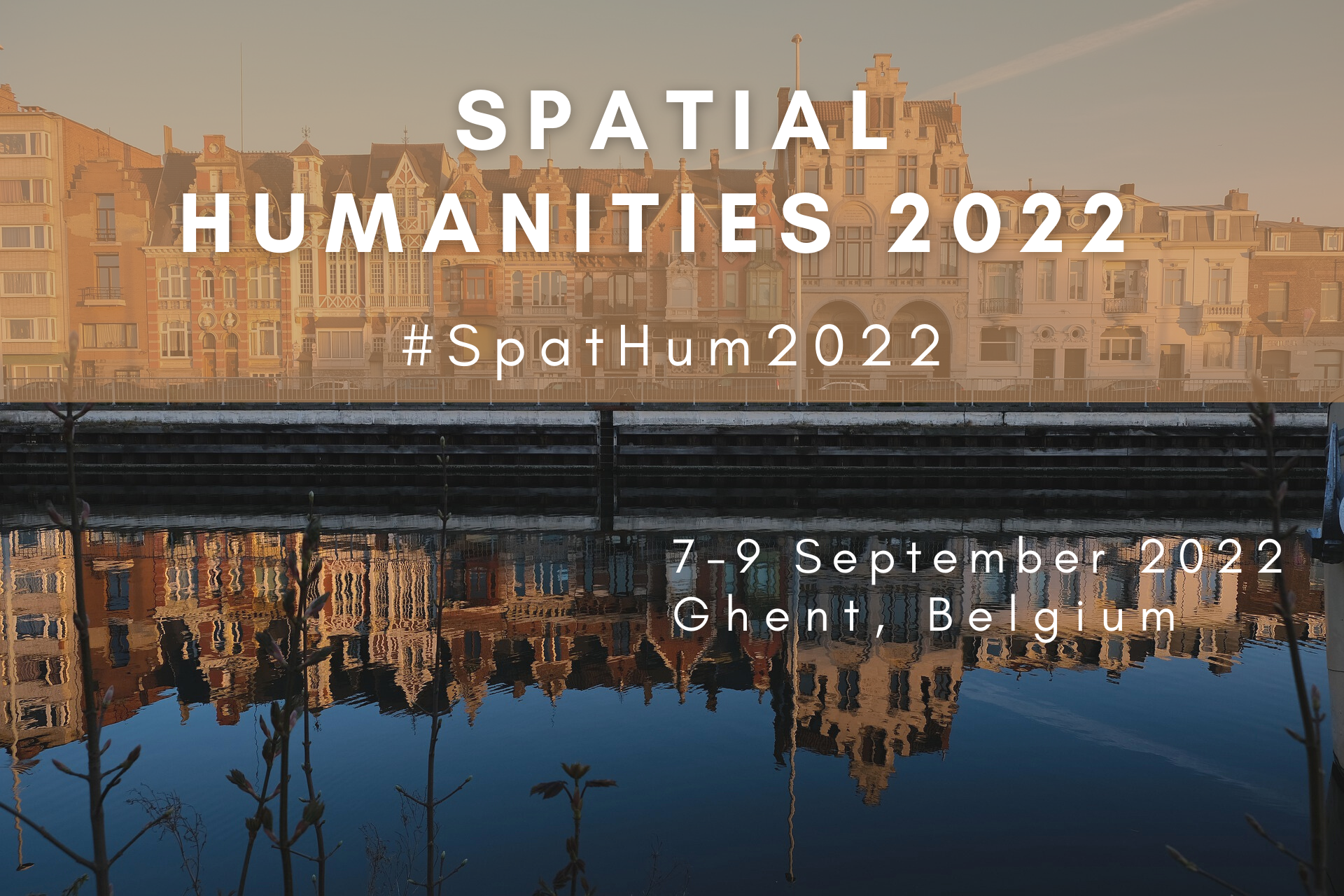General information
Ghent Centre for Digital Humanities, Quetelet Center for Quantitative Historical Research and Antwerp Cultural Heritage Sciences in collaboration with the Lancaster University Digital Humanities Centre and Digital Humanities Lab, Universidade NOVA de Lisboa are delighted to announce that the 4th Spatial Humanities conference will be held in Ghent on 7th - 9th September 2022 at the conference centre Het Pand, organised by CLARIAH-VL with the support of the DARIAH-EU GeoHumanities working group. Spatial Humanities 2022 is concerned with geospatial technologies, such as Geographical Information Systems (GIS), and what they have to contribute to humanities research. The main aim is to explore and demonstrate the contributions to knowledge enabled by these technologies, approaches and methods within and beyond the digital humanities.
Spatial Humanities 2022 will welcome submissions on all aspects of using geospatial technologies in humanities research, methodological innovations, and applied research that develops our understanding of the geographies of the past. These include, but are not limited to, urban gazetteers, artificial intelligence, geographical analysis of text and image, database development, linked open data, IIIF applications for maps and spatial data, metadata and the development of sustainable data workflows.
We welcome contributions from anyone working on computational approaches to spatial questions in the humanities. These disciplines include, but are not limited to, history (including fields from social history such as historical demography and environmental history), archaeology, literary studies, classics, linguistics, art history, anthropology and religious studies, as well as from interdisciplinary and/or technical fields including GISc, digital humanities, computational linguistics and computer science.
Registrations
Registrations for Spatial Humanities 2022 are currently open! You can register here. The conference will be held hybrid comprising an online and in-person part. The conference fees are the following:
- In-person full fee: €150
- In-person reduced fee (students): €100
- Online full fee: €100
- Online reduced fee (students): €50
The people attending the conference in person can optionally attend a social dinner on the 8th of September for an additional fee of €50
Keynote speakers
We are pleased to confirm the presence of Prof. dr. Timothy Ingold and Prof. dr. Veronica della Dora as keynote speakers at Spatial Humanities 2022.
Digitisation and Extinction (Timothy Ingold)
Faced with the twin challenges of the climate emergency and global social injustice, progressive humanism has run out of steam, leading many to search for a radical, post-humanist alternative. One way is to seek to heal the ruptures between reason and nature, or between mind and world, that have underpinned the intellectual project of the humanities ever since it was initiated by philosophers of the Enlightenment, three centuries ago. But another is to dream of a new age of artificial intelligence, virtual reality and fully automated work, in which mind and reason are finally set loose from their bodily and sensuous moorings, leaving the latter – living human beings – as mere husks, destined for extinction. The much-vaunted digital revolution draws much of its impetus from this latter ambition. But could digital technologies be used to opposite effect, to enable humans everywhere to renew their kinship with a living earth? Only if they can should they have a place in the humanities of the future.
Mapping Inner Worlds: Space and the Environment in the Journey of Life Metaphor from Antiquity to Modernity (Veronica della Dora)
The creation of human identity is tied to our relationship with place and the environment. The interrogation of such relationship has long been the focus of human geography. Conversely, however, places and the environment have long been used by humans to visualize and chart inner conditions, spiritual journeys, or simply the passing of time and of human life. The reason is that we are intrinsically bound up in space and time and think spatially. It is therefore no surprise that the abstract concept of life is thought about and experienced in terms of physical travel. The journey metaphor spatializes time and provides a sense of linear progression, a narrative to be sure.
Found in multiple cultures and at different points in Western history, life journeys, however, never take place through abstract geometrical space, but through complex shifting topographies: from the stormy seas that haunted ancient philosophers and early ecclesiastical writers and captivated Victorian imagination, to Dante Alighieri’s disorienting selva oscura (dark forest); from the elaborated topographies of John Bunyan’s Pilgrim’s Progress to Thomas Cole’s river of life traversing the sublime sceneries of American Romanticism, and early twentieth-century landscapes dominated by technology and modern transport infrastructure. These shifting topographies speak of changes (and continuities) in western perceptions of wilderness and of nature by large, as much as of perceptions of space, of the human self and its relationship with life and death.
This talk explores spatial representations of the metaphor and its changing topographies through literary and visual sources from Antiquity to the present. In particular, it interrogates the shift from a pre-modern topographic way of seeing and imagining the world to the synoptic view of modern cartography. Understanding these shifts in an age of uncertainty is of paramount importance, as we are increasingly confronted with the fragility of human life.
Call for Papers
The Call for Papers is closed.
Organisation Committee:
-
Daniel Alves, Digital Humanities Lab, NOVA-FCSH, Universidade Nova de Lisboa
-
Sally Chambers, GhentCDH, UGent
-
Isabelle Devos, Quetelet Centre, UGent
-
Vincent Ducatteeuw, GhentCDH, UGent
-
Lise Foket, GhentCDH, UGent
-
Ian Gregory, Lancaster University Digital Humanities Centre
-
Piraye Hacigüzeller, ARCHES, University of Antwerp
-
Patricia Murrieta-Flores, Lancaster University Digital Humanities Centre
-
Joana Vieira Paulino, Digital Humanities Lab, Universidade Nova de Lisboa
-
Christophe Verbruggen, GhentCDH, UGent
